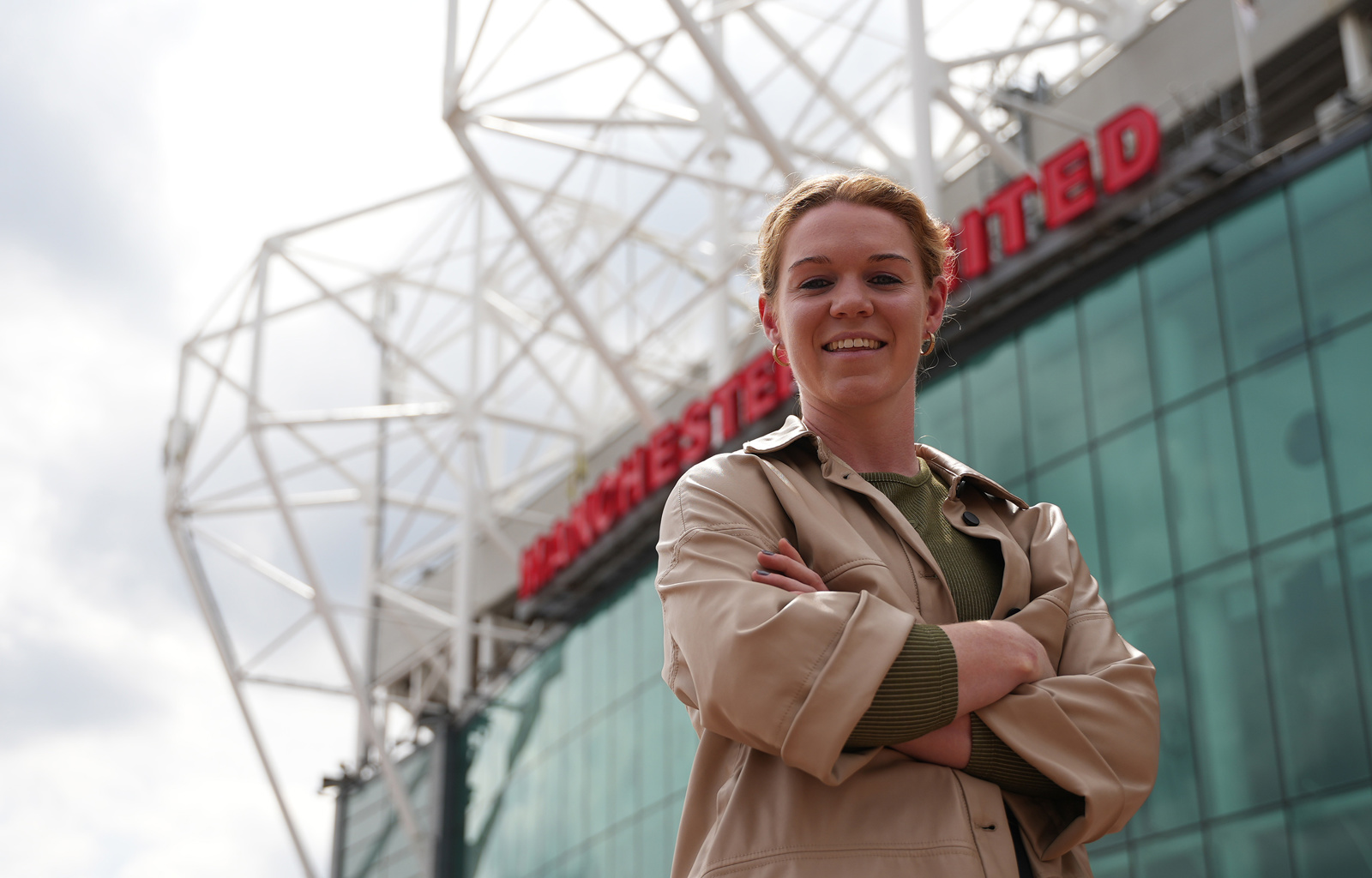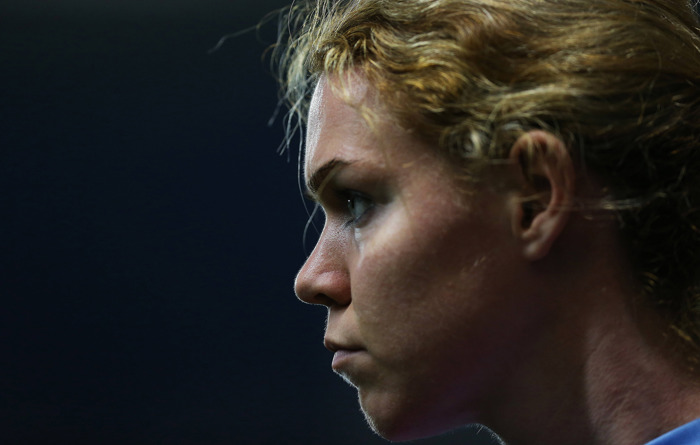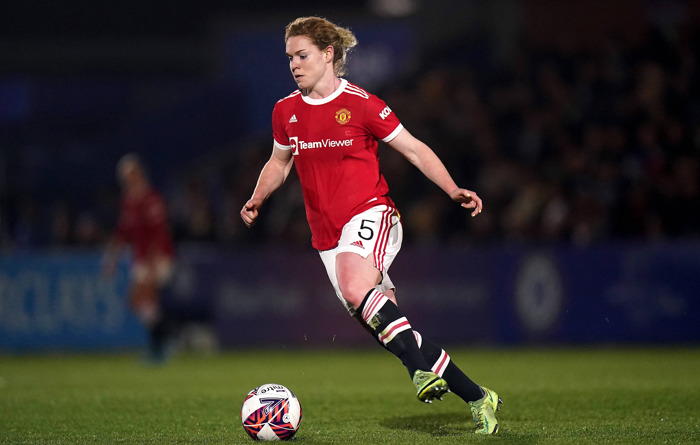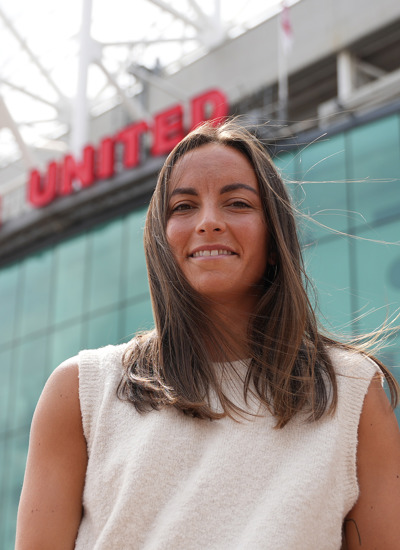

About
Aoife Mannion
Manchester United defender Aoife Mannion is a member of FIFPRO's Mental Health Taskforce.
I am currently rehabbing a back-to-back ACL injury. Before I had my first ACL injury, I thought football just gets better and better until you retire. But that brought an end to that narrative for me.
There are two sides of it: the intense rollercoaster of emotions on one hand and, on the other, there is an abrupt departure from being a footballer and the routine we’re used to.
Sometimes it can be hard to understand that as a professional, football is what we live and breathe. Of course, that is a great privilege and something we all love to do. But when that stops through a serious injury, it's a massive shape-shifting moment.
This is my second ACL injury and it’s been a little easier this time around. Getting through the first one emboldened me. It made me feel more resilient, purely because I understand the process, the trajectory, the timeline.
I can now anticipate the inevitable mental dips, so I’ve been able to sit down with medical staff and proactively put in little things that might defend against those dips.

From having this injury twice, what I've realised is that a lot of my feelings towards the injury are subjective. For instance, how can it be that I’ve had the same injury twice, yet I feel different the second time around?
Am I going to be expected to go and watch the girls play when I’m injured? Or for my mental health, would it be better if I stayed at home? Those are situations I’ve learned from in my first set-back.
It’s so important to create that conversation around mental health; the things that trigger you during injury specifically, because the conversation just reduces suffering.
That’s why I want to share my experiences, so another player can get that insight without them having to go through a year of rehabilitation to learn about it like I did.
I'm part of the Mental Health Taskforce at FIFPRO and there's several players that approach the conversation of mental health from different lenses. A few of the girls talk particularly about an emerging concept: post-tournament blues.
There are conversations around how you can have the best tournament of your life and potentially months after it, feel the lowest that you've ever been.
What is post-tournament blues?

Even though we all come at it from a different angle, what I've noticed is that there are common threads: we’re all looking at the same thing, but from a slightly different perspective.
For me, it's talking about my injury and sharing my experiences.
In the last few years, we've managed to reduce the stigma on talking about clinical mental health issues, such as depression and anxiety. But then another positive that comes from the reduction in that stigma is being able to proactively talk about wellbeing – so not having to necessarily wait for people to seriously need help before we have conversations about our wellbeing.
Most of us in football are aware of the concept of burnout. In my first rehab, I tried to approach it the same way I would as a player – going over and beyond. From having that experience over 11 months, it's not that smart and it's not necessarily going to help me.
In the Mental Health Taskforce meetings, we've been talking about the concept of post-tournament blues: the unexpected come-down that players experience after tournaments.

Personally, I've not been involved in a senior international tournament. But my lens into this subject is seeing it through my team-mates and asking: ‘How can I help my team-mates?’
What I've noticed is that we can't assume what someone experiences. The main thing is just asking them what they need.
In terms of decompressing from intense tournament experiences, players seem to benefit from time off. Whether it’s an extra day off here or there, being out of a structured football environment seems to help.
Now, that isn't something that footballers themselves like to hear because we always want to play. We want to train more. We want to be in the thick of it. But that can lead to burnout.
Conversations around what players think they might need to mitigate from those feelings of post-tournament blues are really important. But equally important are the conversations with staff – because it's the staff in a football environment that set the routine and structure.
What makes post-tournament blues quite a hard concept is that it's not something that many of us have experienced personally – only those people who have been to tournaments can really give a proper idea of what it feels like.
So, a player like me, or staff members, might not have actually experienced it – so that’s why it's extra important to ask questions and then to listen.


